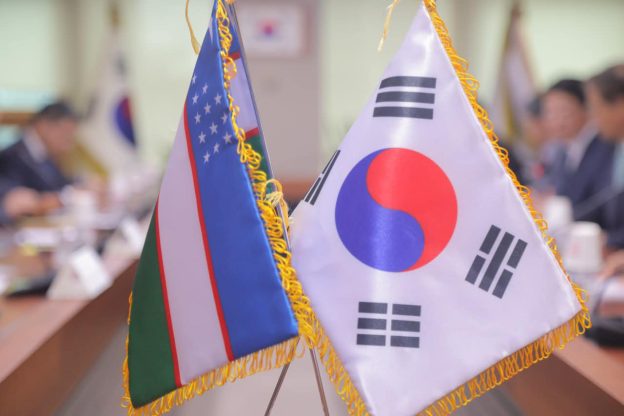Uzbekistan ready to send migrants to South Korea
Uzbekistan’s Employment Minister Behzod Musaev was in Seoul to discuss with South Korean officials opening new sectors for Uzbek workers. South Korean businesses have called for the unprofessional worker visa to be extended to more areas. Since President Yoon took office, foreign work permits have jumped considerably.
Seoul (AsiaNews) – As job opportunities for Uzbek migrants shrink in Russia, new ones are opening up in South Korea.
This week, the Uzbek Minister of Employment and Poverty Alleviation, Behzod Musaev, travelled to Seoul to discuss with South Korean officials expanding the sectors in which Uzbek workers can be employed.
Uzbekistan is one of 16 countries[I] whose citizens can apply for an E-9 work visa for non-professional employment.
Until a few months ago, E-9 visa holders could work in agriculture, fisheries, manufacturing, and construction.
Since April, the South Korean government has agreed to requests from the business community to let foreign workers in a broader range of industries, including catering, tourism, forestry and mining.
After a meeting two days ago with his South Korean counterpart, Minister of Labour and Employment Lee Jung-sik, Musaev announced on Telegram that Uzbek nationals will be able to work in the additional sectors.
During his visit, Musaev also met with Kwak Young-cheol, chairman of the Automotive Industry Association of the Republic of Korea, who said that the industry needs some 3,000 additional workers annually. These are skilled workers, who come under a different visa, the E-7, but all migrants can apply.
Although no specific agreement was announced, the Uzbek minister quoted Kwak Young-cheol on Telegram, saying that South Koreans “want to cooperate with Uzbekistan in this regard.”
South Korea’s demographic problems explain such a development, as the country grapples with a rapidly aging population and a shortage of young workers.
According to The Diplomat, a magazine covering the Asia-Pacific region, some 50,000 and 60,000 work permits were issued annually in past years. After President Yoon Suk-yeol took office, the ceiling for E-9 visas rose to 110,000 in 2023, and could reach 165,000 this year.
Some study shows that that 2.49 million foreign migrants lived in South Korea as of October last year, up from 1.45 million in 2012. Most are from China, employed in the manufacturing and mining sectors, with only 4 per cent from Uzbekistan.
[I] Bangladesh, Cambodia, China, Indonesia, Kyrgyzstan, Laos, Mongolia, Myanmar, Nepal, Pakistan, Philippines, Sri Lanka, Thailand, East Timor, Vietnam.
12/02/2016 15:14
11/08/2017 20:05
14/05/2019 16:25







.png)










